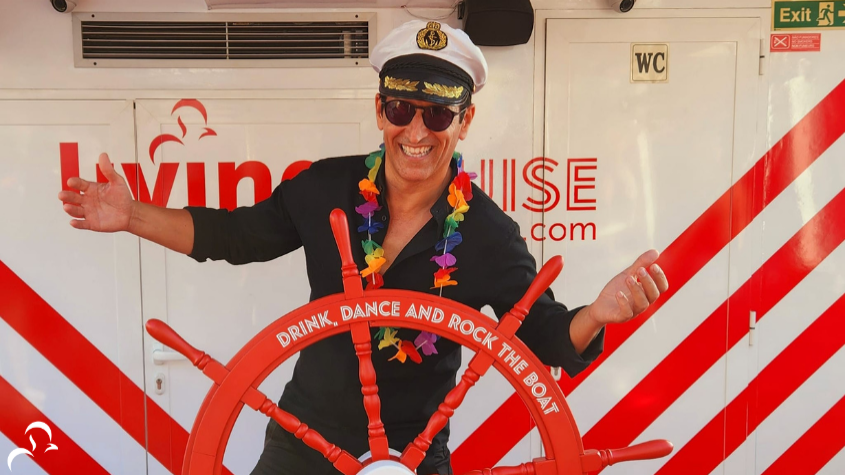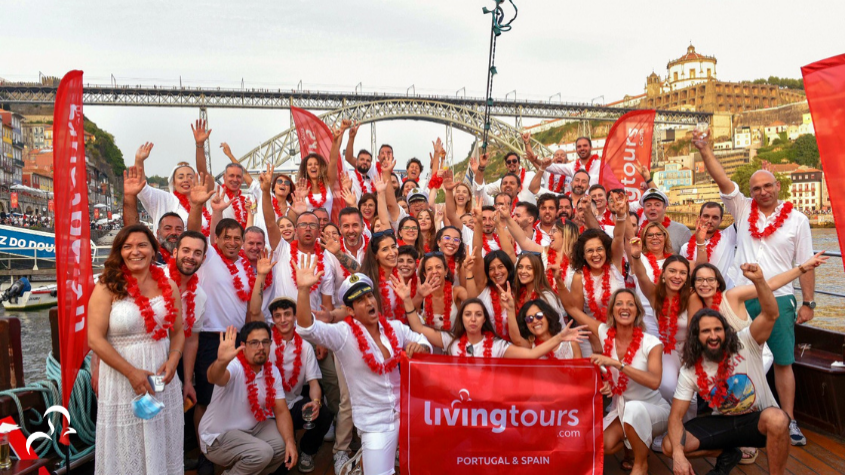
Ask Who, Not How
This shows us how to create amazing companies, projects or organizations the easy way – without having to learn or do more yourself.
Richard Branson, one of the world's most famous businessmen, adventurer, space traveler and founder of the Virgin Group in an interview for The Diary Of A CEO explained:
“I was dyslexic and really bad at school, I just assumed I must be a bit slow. I could do simple addition and subtraction calculations. But when things got more complicated, I couldn't.
I was at a meeting of directors of around 50 years, and I asked the director: is this good news or bad news? And one of the directors said to me, “Can Richard come out?” I went outside and he said to me: “You don’t know the difference between net profit and gross profit, do you?”
I said no"
He said, “I figured not,” and took out a sheet of paper and some colored pens, colored it blue, then added a fishing net. and put a fish in the fishing net. And he said, “So, the fish that are in the net, that’s your profit at the end of the year, and the rest of the ocean, that’s your gross revenue.” And I said, “I get it.”
It really doesn't matter. For someone who is running a company, what matters is can they create the best company in their sector? Can someone do the math. It helps to know how to add and subtract, but if you can't do these things, don't worry too much. You can find someone else who can do this
I'm good with people. I can trust people. I surround myself with really good people. That’s what happens with being dyslexic, I had no choice but to delegate.”
I am also dyslexic, I confirm that exactly the same thing happens and happened to me. And reading and listening to this is really liberating, inspiring and empowering, to hear a multimillionaire, successful entrepreneur, whose group is made up of 40 companies, employs 71,000 people and generates 24 billion dollars in annual sales, say that he can't read well or do math well, and that “it really doesn’t matter”
This confession is music to my ears, not only because it's humanizing and honest, but also because it makes me feel less like a fraud!
We are almost celebrating the 20th anniversary of the Living Tours Group, the company I founded is on its way to 20 million in revenue, employs around 200 people, and I spend my time flying around the world participating in events to promote our group, and between our offices and stores.
But somewhere inside me, I had a feeling that I wasn't a real CEO because I'm not brilliant at math, I never was, spelling, I never was, or some parts of the operational aspects of running a business.
For the last 20 years, I've focused my energy on my creativity and creating the best products and services I could, and I've delegated everything I don't like doing and couldn't do (usually the same thing) to someone much more capable, experienced and confident. .
This has always worked for me – I long ago gave up hope of becoming an expert in the things I'm not good at and don't enjoy – but this perspective is inconsistent with the advice I hear from business schools, entrepreneurship books and blogs. success, which typically state that you need to be good at several things to be successful.
Therefore, I discovered that my natural ability, my creativity, objectivity and knowing how to manage and deal with people, is the thing I do best and I simply dedicated myself to it. I'm really bad at the things I don't like, and this has proven to be a superpower because it's allowed me to double and triple down on the things I'm good at and enjoy doing.
In business – especially if you dream of creating a big business – it's not about learning how to do something, it's about knowing who can do it for you.
Business is all about people. Every company, whether they realize it or not, is simply a recruitment company. Each CEO and founder will be judged simply on their ability to: 1st find the best individuals, 2nd connect them to a culture that brings out the best in them – where they become more than the sum of their parts, where 1 + 1 = 3 .
Founders, especially inexperienced ones, have a tendency to horribly overestimate their own importance – they fall into the trap of believing that their results will be decided by their own genius, ideas and skills.
The truth is that our destiny will be defined by the sum total of the ingenuity, ideas and execution of the group of people we have brought together, we just need to be the leaders. All the great ideas, everything we create, our marketing, our products, our strategy – it will all come from the minds of the people we hire.
We are a recruiting company – that's the priority, and founders who realize this build companies that change the world.
Steve Jobs. another dyslexic, like so many dyslexics in the business world, said:
“I consider the most important job for someone like me to be recruiting. We care about hiring. I've built a lot of my success on finding these truly talented people and not settling for B and C players, but really going after the A players. It doesn't make sense to hire smart people and tell them what to do, we hire smart people so they can can tell us what to do.”
When we need to do something, we have been trained to ask ourselves, “How can I do this?” The best question that the world's greatest founders ask, by default, is “who is the best person who can do this for me?”
Your Ego will insist that you do it.
Your Potential will insist that you delegate.
Did you like it?
Average votes: 4.17 of 5
Go Back to the Blog












